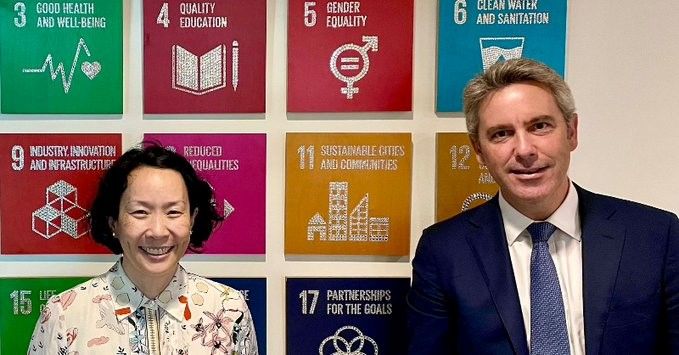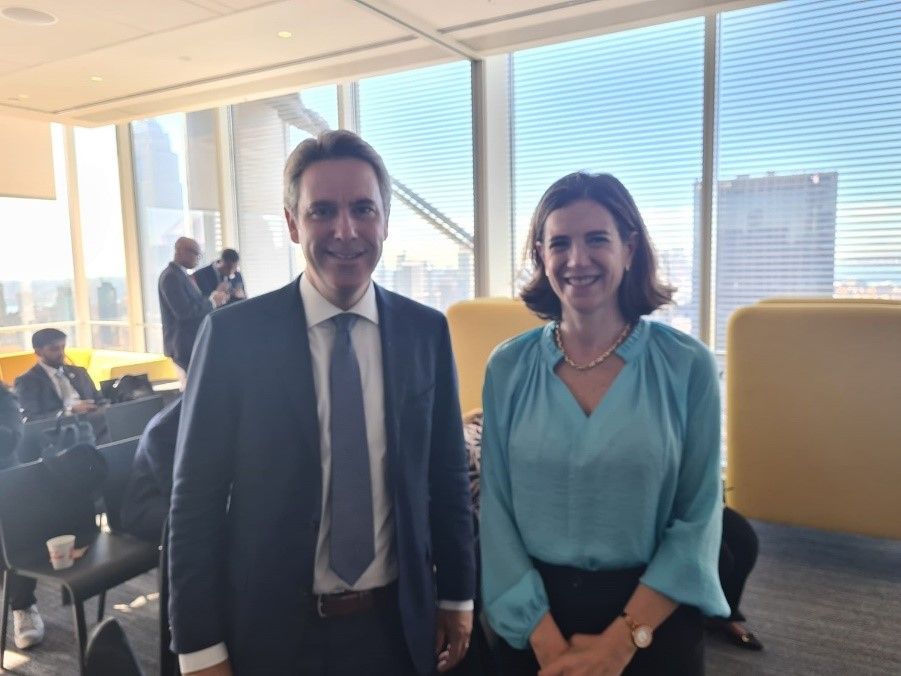- UNGA
Highlights- AEF at UNGA77
- The Africa-Europe Foundation

The 77th session of the UN General Assembly (UNGA 77) convened on September 13, 2022 and ran through September 26, 2022.
As the world continues to grapple with mounting crises such as the impacts of Covid-19, the rising cost of living, the impact of the war in Ukraine and climate change, the AEF was proud to leverage its network of thought leaders and partners to reinvigorate multilateralism and work towards a common shared agenda for a prosperous world, amid growing global challenges and geopolitical shifts.
The AEF Women Leaders network – cares, dares, and acts!

Meeting on the 19 of September, influential women leaders from the Africa- Europe came together for an in-person breakfast meeting at the Irish Permanent Mission in New York to discuss investment in climate adaptation and unblocking cross-continental action on critical issues including loss and damage.
The Women Leaders Network (WLN) brings together changemakers and international policymakers committed to catalysing collaborative actions as part of a strengthened Africa-Europe partnership and in the face of the global climate emergency.

WLN members at the in-person meeting in New York. Front Row from left, Ngozi Okonjo-Iweala, Kristalina Georgieva, Mary Robinson, Amina Mohammed, Hindou Omarou Ibrahim
The WLN meeting marked the launch of the AEF programme at UNGA77, focusing on catalysing collaboration on Agri-food systems, Climate Adaptation, Digital Economy, Investment in Youth and the Future of Health workforces.
Chaired by co-presidents of the AEF, Ellen Johnson Sirleaf (Nobel Laureate and Former President of the Republic of Liberia) and Mary Robinson (Chair of the Elders and former President of Ireland), the meeting was anchored by the AEF Policy Brief on Climate Adaptation, which sets out priority areas of cross-continental action, from the investment in climate resilient infrastructure to creation of a Loss and Damage Facility, from delivering on the promised $100bn target from the Paris Agreement to addressing African countries’ capacity to access funds, to ensure adaptation finance reaches the most vulnerable and marginalised people.
“If Africa and Europe are to build a real climate partnership, there needs to be a step-change in understanding each other’s immediate needs, and the longer-term aspirations the two continents have set for themselves”
stated President Mary Robinson.
During the discussion, WLN members emphasised the urgent need to identify ways to increase investment from private finance in building climate resilience, notwithstanding the provision of adequate technical and technological support to address adaptation action and finance in the lead-up to COP27.
Speaking at the event, Amina Mohammed, United Nations Deputy Secretary-General, underlined the urgency of collaborative action involving donors, multinational development banks and private finance.
“Climate change is no longer a future crisis, it is one that is currently felt through droughts, fires, and floods which impact the most vulnerable communities and people in developing countries”
adding that “I welcome the Africa-Europe Foundation’s focused discussion on doubling adaptation finance, and loss and damage, and hope this work can help build momentum to COP27”.
Ngozi Okonjo-Iweala, Director General of the World Trade Organization underlined that
“Trade is an adaptation tool and needs also to be part of the solution pointing out the slow progress to move towards implementation at the level of global climate negotiations.”
She argued that adaptation action can be the right levy to reinforce the cross-continental partnership and sectoral joint working, as well as to strengthen the wider influence that the two continents have on climate diplomacy.
In a statement following the meeting, the WLN collectively called for urgent action:
- For developed countries to re-engage on high ambition climate actions to re-build trust with African countries. The autumn meetings, and G20 must be used to build on work at UNGA77 to reaffirm the vital importance of multilateralism in advance of COP27.
- To re-focus on fast-tracking implementation of low carbon solutions. The science tells us what needs to be done, and equally what we must stop doing. The $1.8tr spent annually on harmful public subsidies which intensify carbon emissions must be converted and repurposed for climate action and energy transitions.
- For finance questions need to be resolved. The $100bn so often discussed at COP since 2009 is but a small fraction of what is needed. And it represents a rounding error when compared with the enormous sums found for pandemic measures, estimated at $14tr.
- For public funds to focus on those actions which private investment flows will never address. A step-change is needed to unlock energy access across Africa and speed up the clean energy transition in Europe, mobilising domestic and foreign flows.
- None of the above will be possible unless Europe and Africa start to invest in building peace. The Russia-Ukraine conflict has poisoned global relations and multiplied the difficulties of reaching international agreement at a time when collective action is needed now more than ever.
The AEF translated the discussions from the high-level week into concrete action, through convening the experts and policymakers on the margins the UN Science Summit, for the first Africa-Europe Foundation Day on 27th September.
The first ever Africa-Europe Foundation Day at UNGA!
On Tuesday, 27 of September the AEF organised its first ‘Africa-Europe Foundation Day’ as part of the Science Summit at UN Head Quarters co-hosted with the Permanent Mission of the Republic of Senegal and the Consulate General of France.
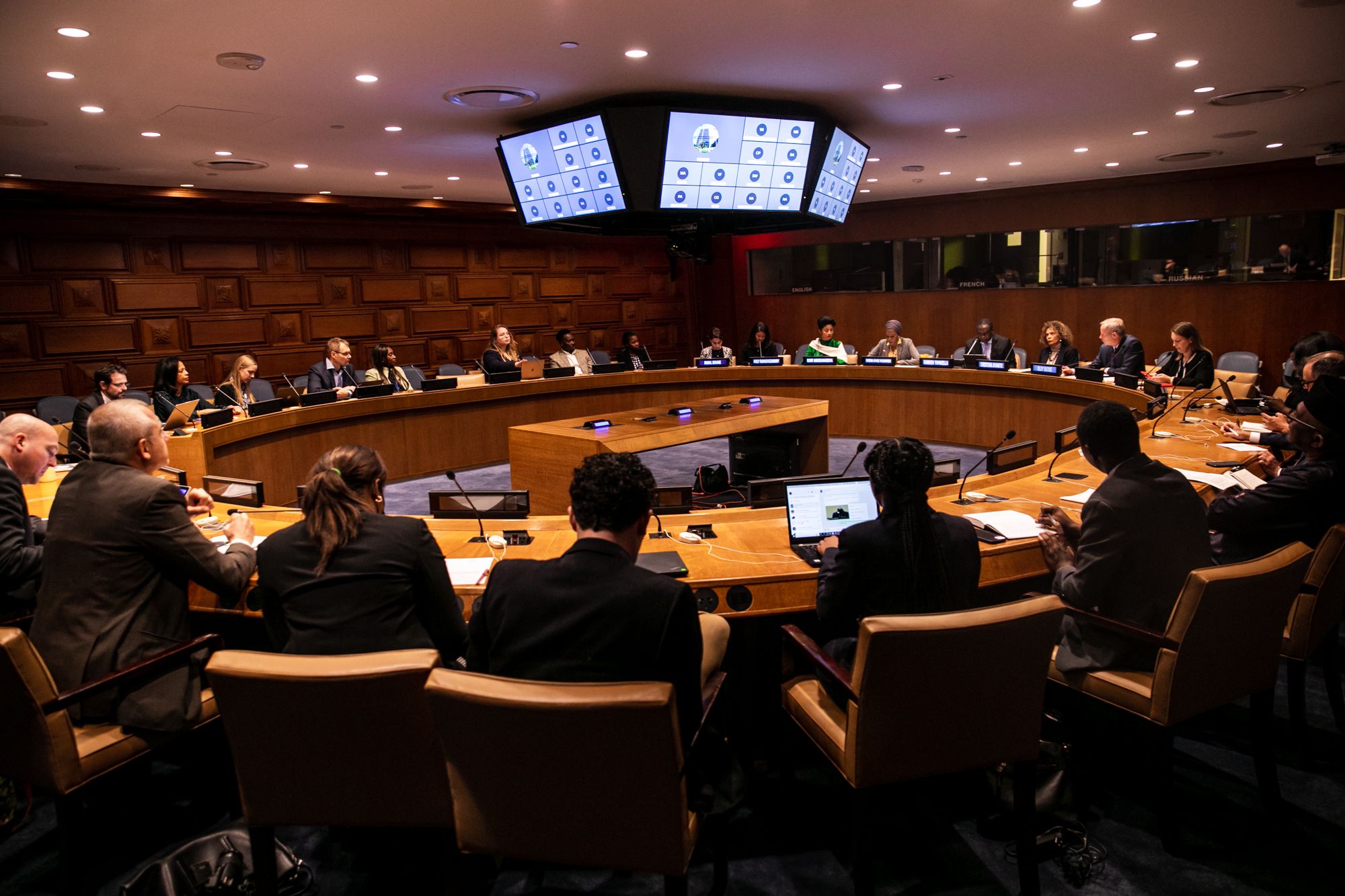
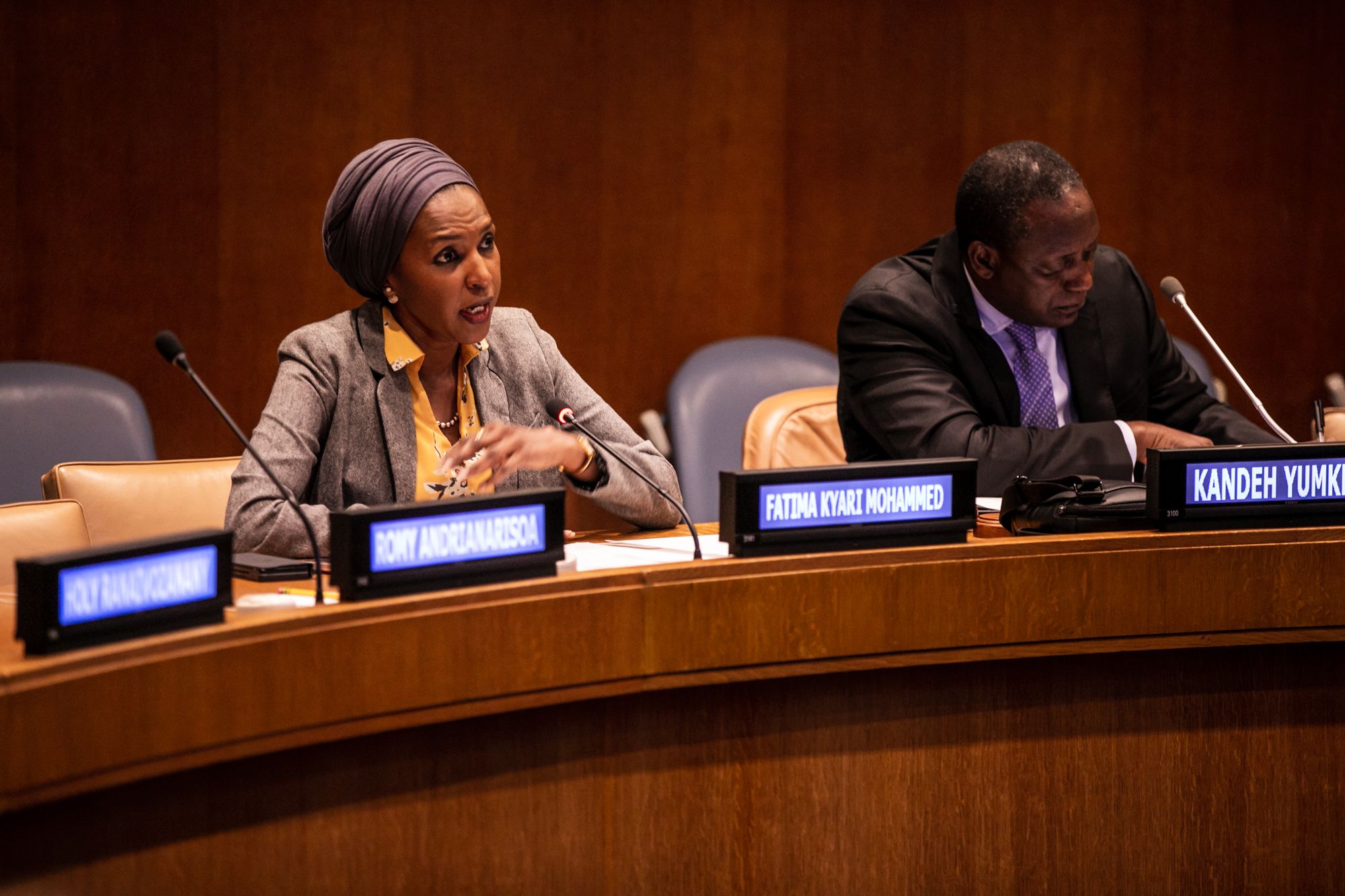
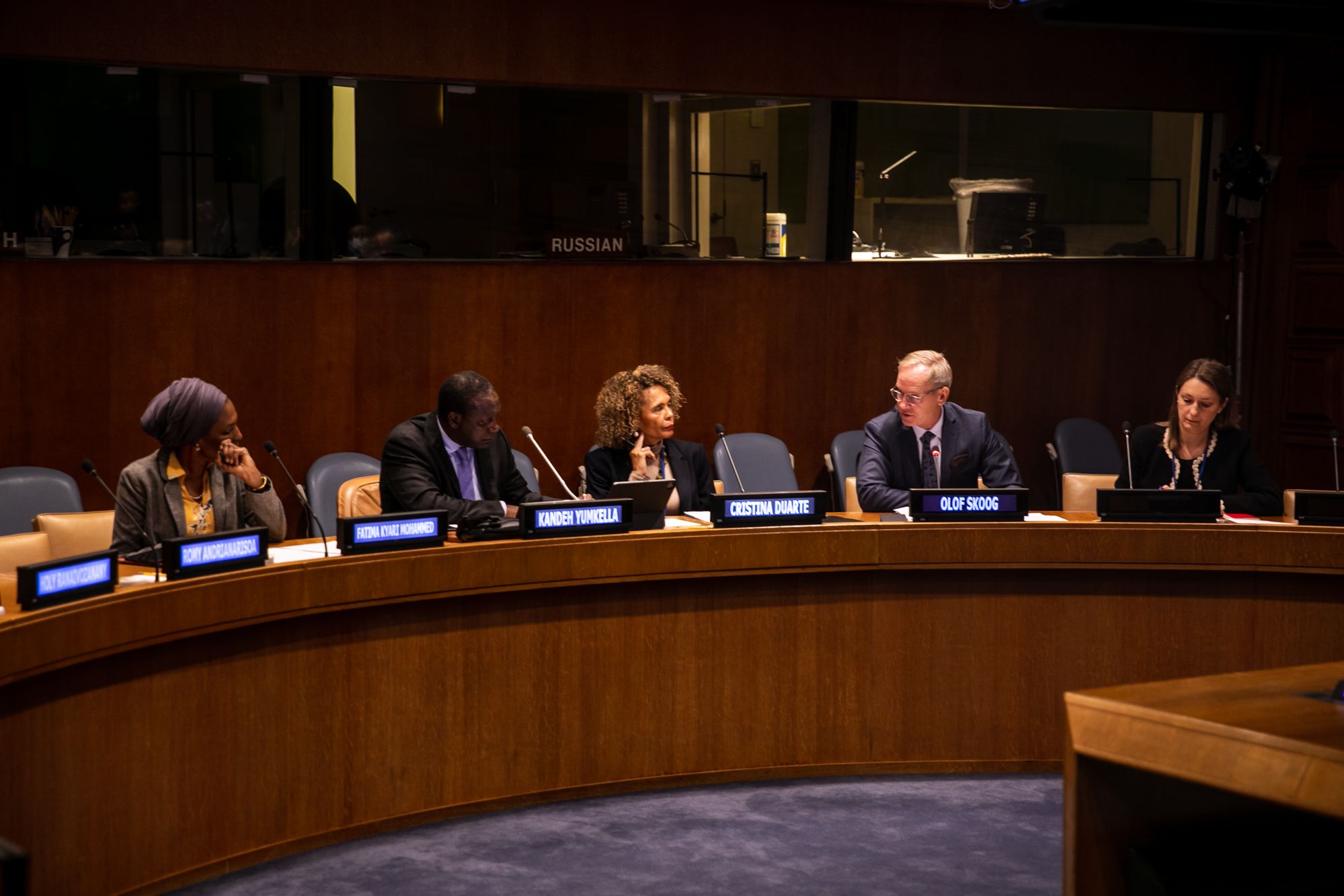
The Day brought together leading global voices including Government, Heads of Industry and Philanthropy as well as youth activists to raise ambition on cross-continental cooperation amidst global crises.
Throughout the day a series of roundtables were held to profile new policy research, moon-shot ideas and catalyse action and cooperation on three impending issue areas: climate adaptation, food security, and digital economy.
The opening focussing on ‘Agri-food Systems: Increasing resilience to shocks and crises’ featured keynotes from the UN, the AU and EU to focus on the opportunity for a partnership on food systems between Africa and Europe and accelerating progress towards food and nutrition security for all by 2030.
Joining the session H.E. Olof Skoog, Ambassador and Head of the Delegation of the European Union to the United Nations underscored that there has never been a more urgent time to discuss the partnership through this lens and to demonstrate the joint global engagement that both continents share at a multilateral scale. Echoed by H.E. Fatima Kyari Mohammed, Ambassador and Permanent Observer of the African Union to the United Nations, both ambassadors jointly highlighted that despite the ongoing war in Ukraine and its reverberating effect on global good food security and nutrition, the EU and AU continue to maintain a high-alert on this strategic priority and the commitments made at the EU-AU Summit in February as we look towards COP27.
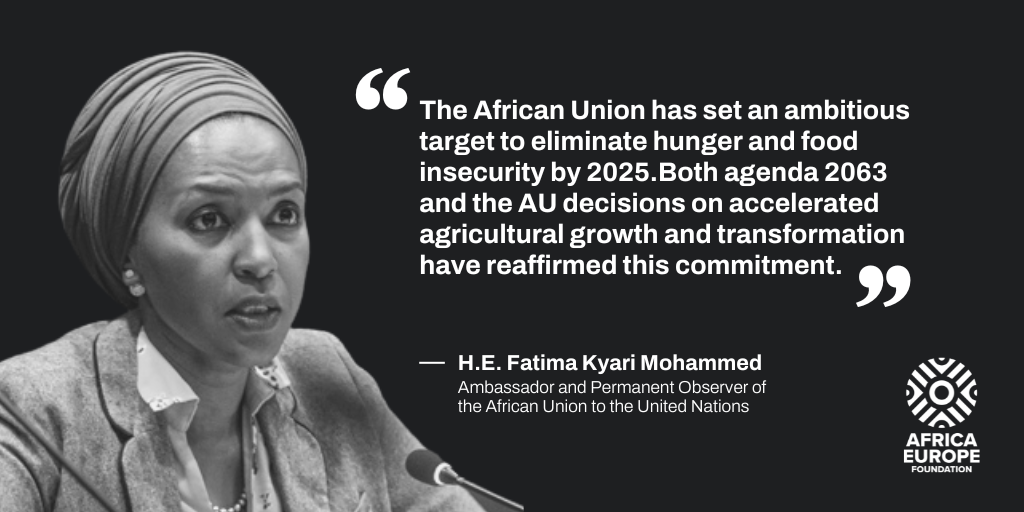
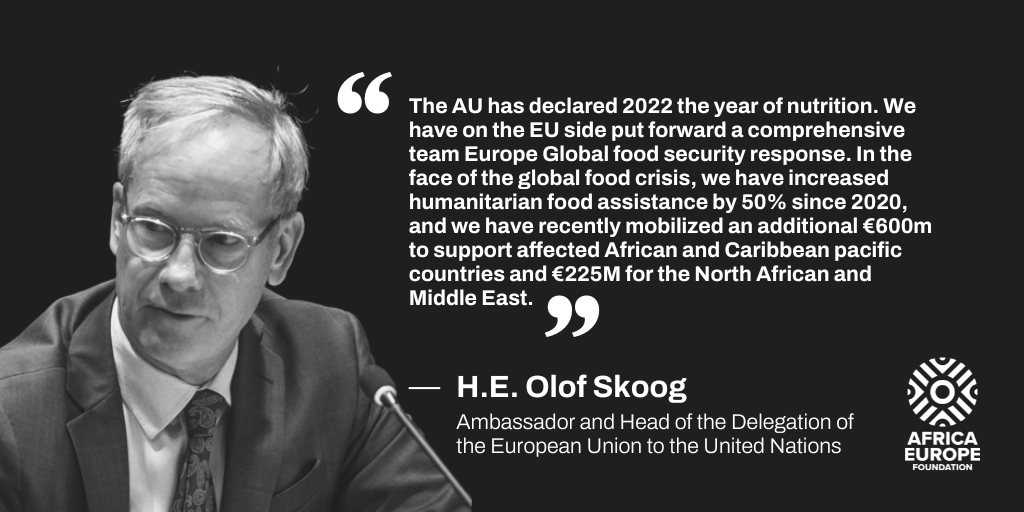
Although both Commissions remain confident in the partnership, Christina Duarte, Under Deputy Secretary-General of the United Nations and Special Adviser to the UN Secretary-General on Africa, underscored the importance of building resilience and strategic autonomy for African countries who are disproportionally affected by price and supply shocks as well as the ongoing impact of the climate crisis.

Providing invaluable sectoral expertise, Wanjira Mathai, Managing Director, Africa and Global Partnerships at the World Resources Institute (WRI); and Stefanos Fotiou, Director, Office of Sustainable Development Goals at FAO and Director of the UN Food Systems Coordination Hub, highlighted the importance of partnerships and financing mechanisms which are readily available to local partners as well as improving the clarity of commitments and quantity of allocated funds.
Building on the urgency to act now, the second session focussed on “The Road to COP27: Scaling up Climate Adaptation Financing”. With only eight years left to halve global emissions, and already six years spent negotiating the Paris rulebook, COP27 must be the year that the international community makes the shift from mistrust and siloed commitment to unified action and implementation.
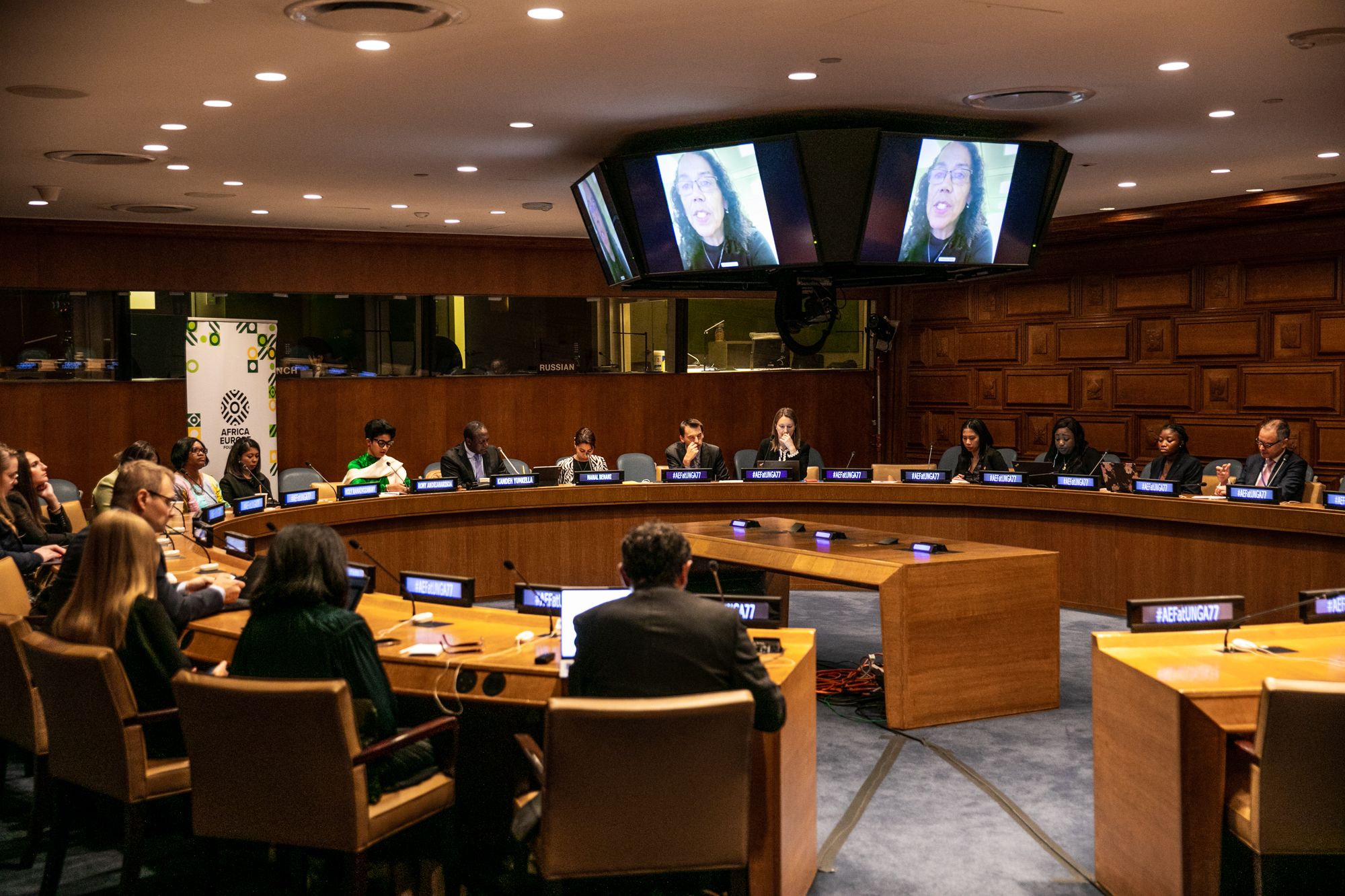
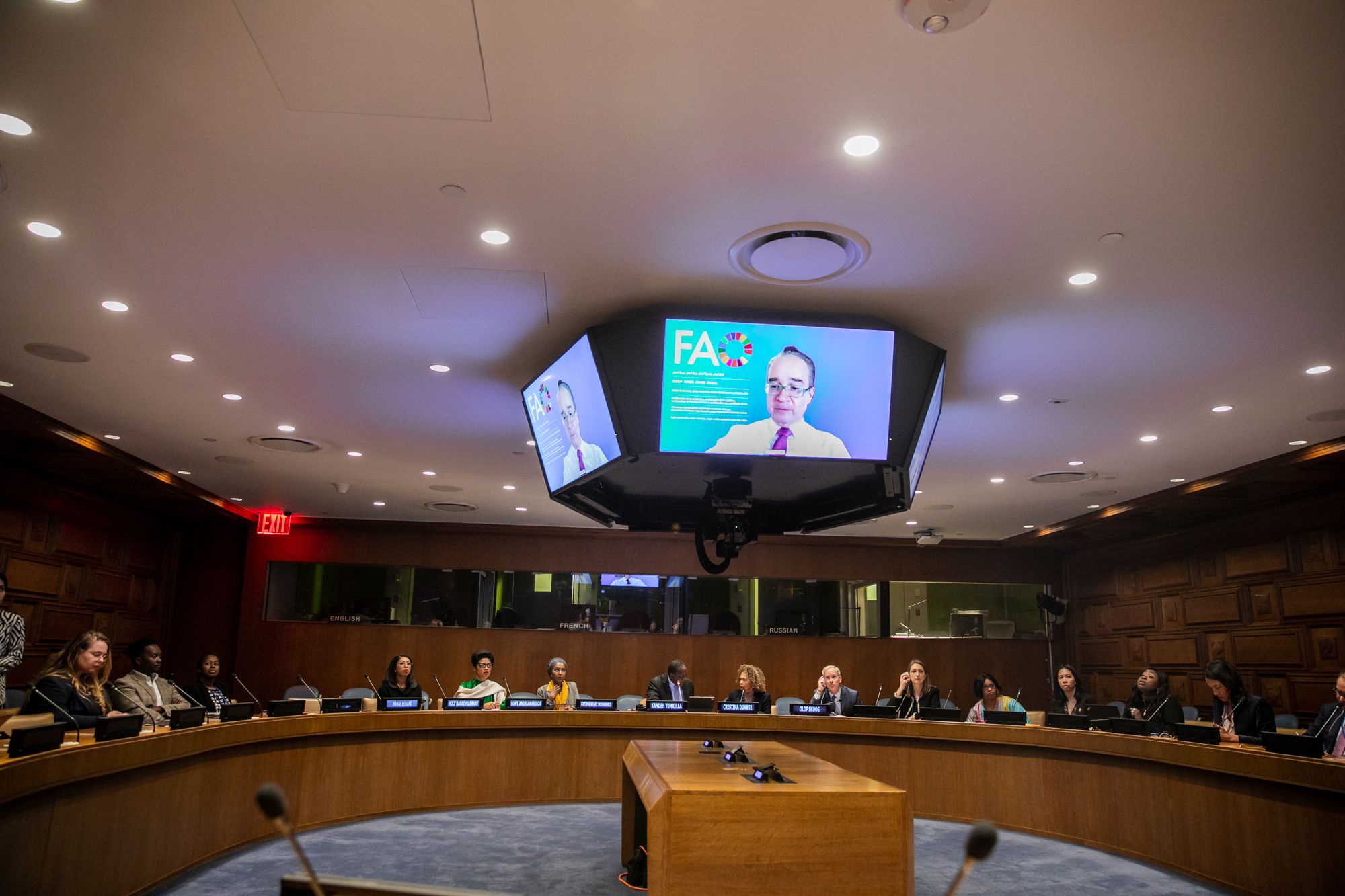
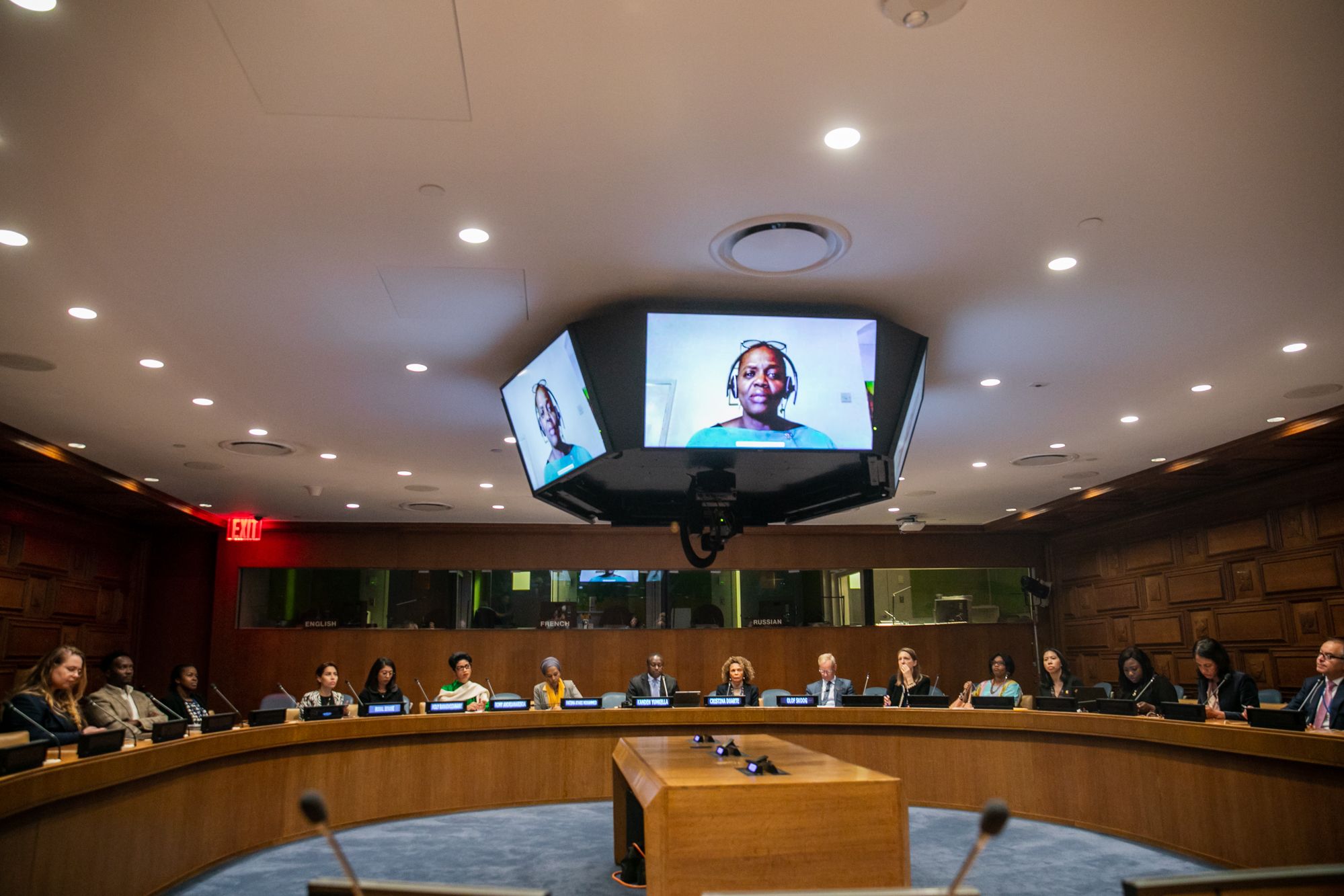
Additional speakers who joined the session were:
Romy Andrianarisoa, Chair of the Commission for Sustainable Development and Business Ethics – Groupement des Entreprises de Madagasar; Vhalinavho Khavhagali, Senior Fellow for Adaptation at the Africa-Europe Foundation, and country representative for South Africa at the International Union for the Conservation of Nature (IUCN); and Catherine Patillo, Deputy Director of the African Department of the International Monetary Fund (IMF)
Speakers concluded that in order for COP27 to be a success and break barriers of mistrust and move towards a unified global partnership, leaders from high emitting countries must urgently meet their unmet commitments to deliver climate financing for adaptation, loss and to damage.
Changing tack in the afternoon at the French Consulate General of New York, the importance of looking ahead to a joint digital future for both continents was underscored by the final session of the day on “Responsible AI for Africa’s Development”.
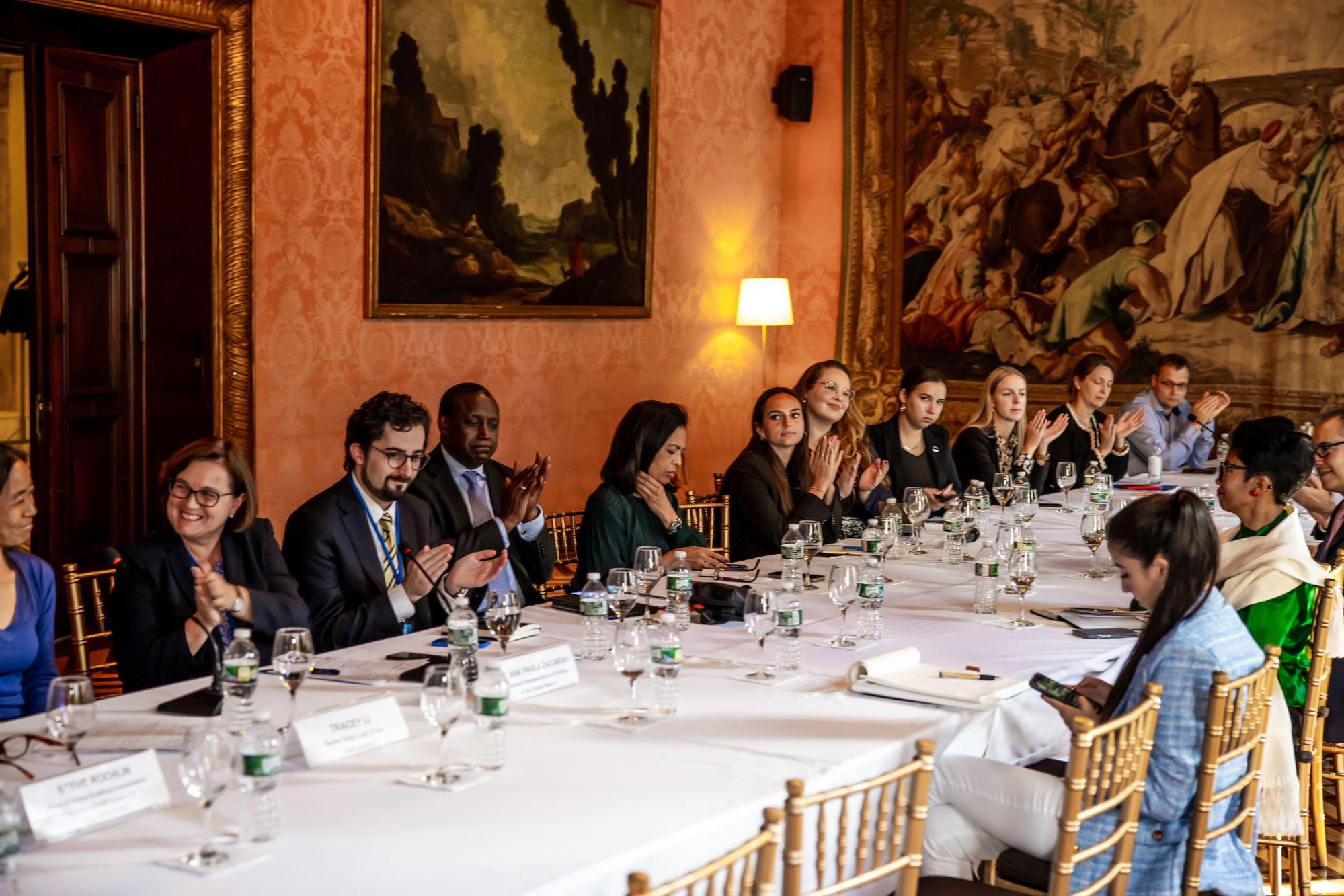
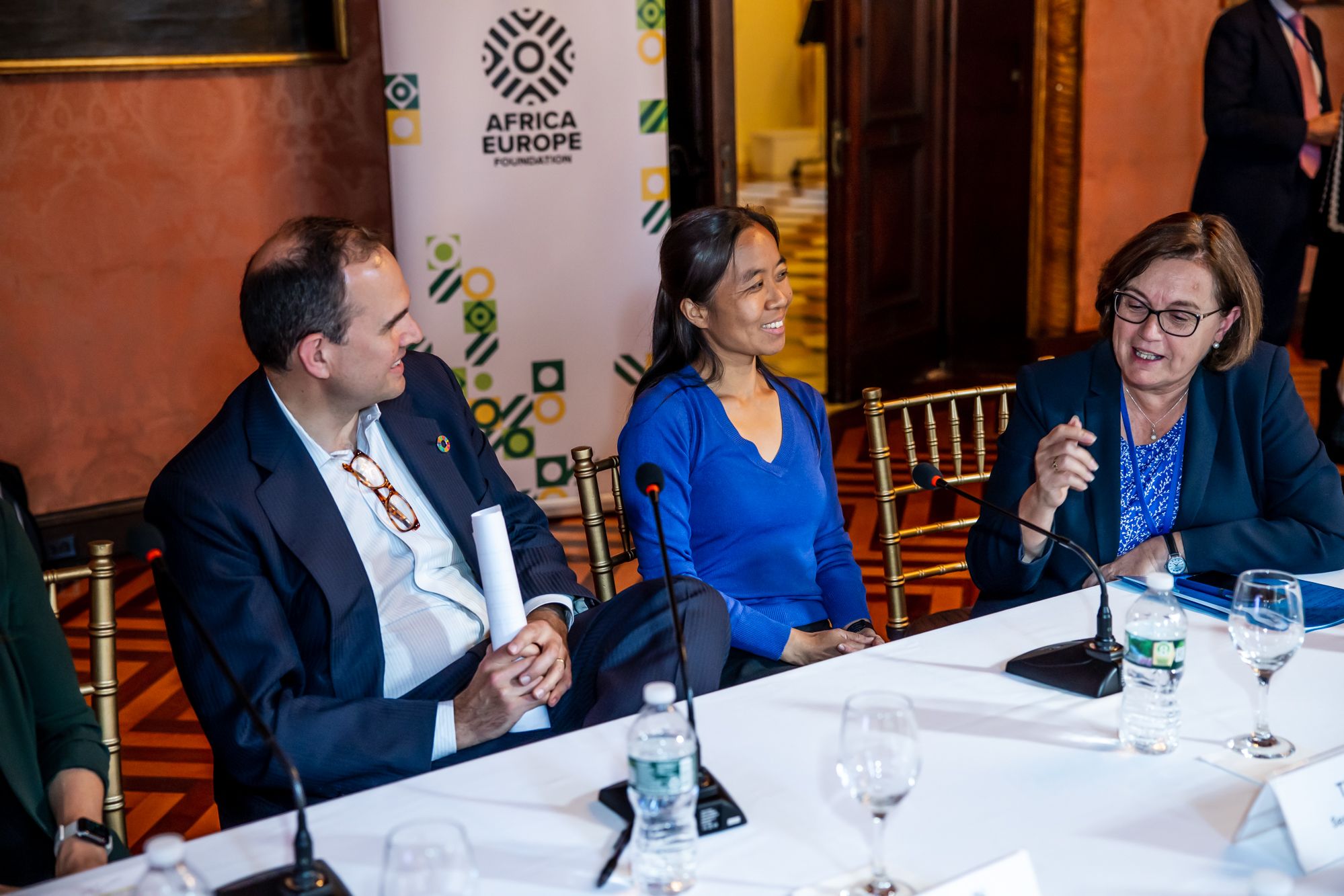
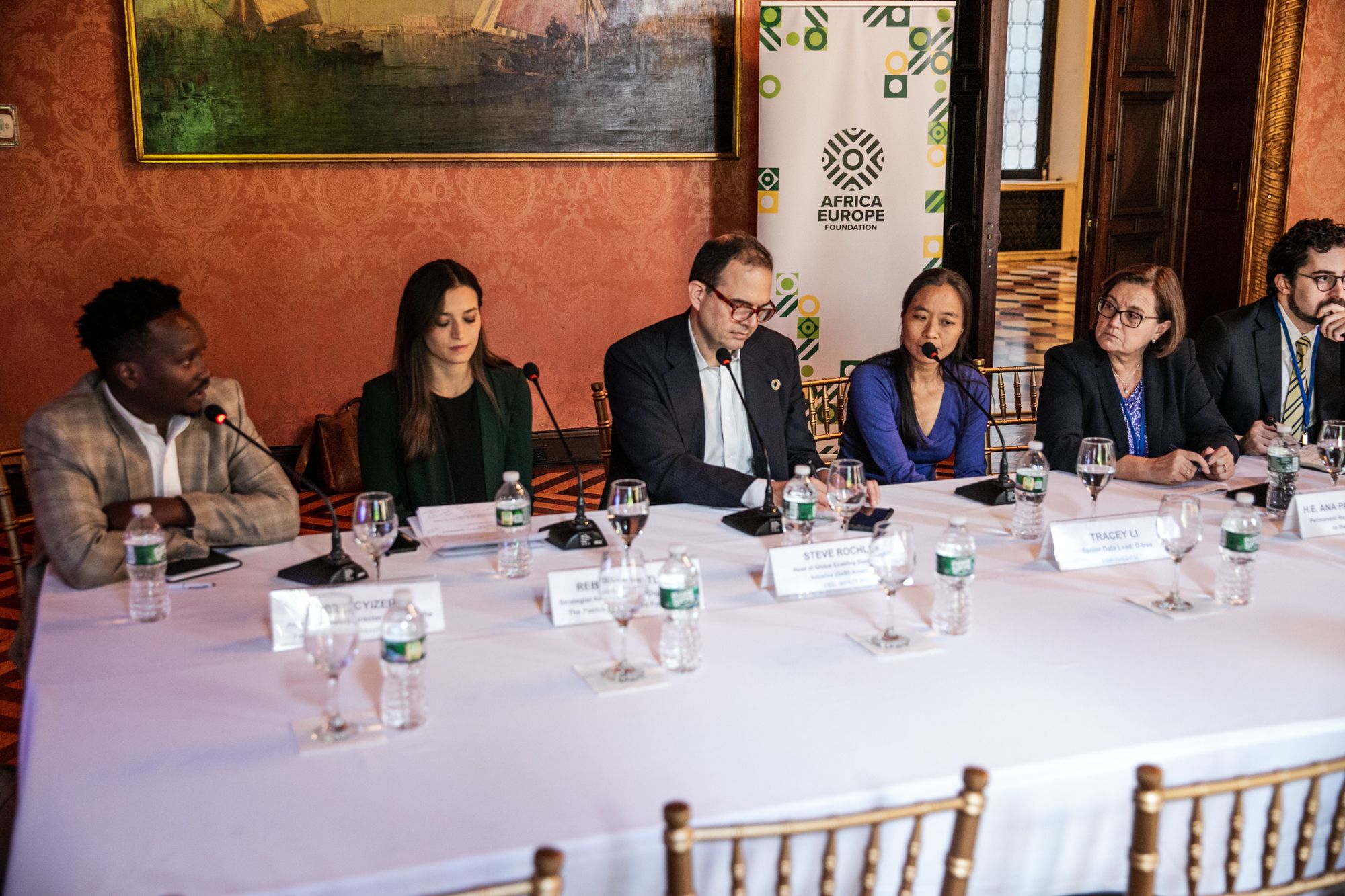
Artificial Intelligence (AI) can be a key enabler to achieve Sustainable Development Goals. Speakers concorded that the development and dissemination of responsible innovative AI solutions needs to be supported by policy and regulatory frameworks, skills development for professions including engineers and researchers and the necessary data storage capacity.

Joining the session were:
H.E. Ana Paula Zacarias, Permanent Representative of Portugal to the United Nations; Joris Cyizere, Acting Managing Director Centre for the Fourth Industrial Revolution Rwanda; Tracey Li, Senior Data Lead, D-tree International; Rebecca Distler, Strategist for AI, Data, and Digital Health, The Patrick J. McGovern Foundation and Steve Rochlin, Head of Global Enabling Sustainability Initiative (GeSI) America.
Access the AEF Day sessions:
-Session 1- Agri-food Systems: Increasing Resilience to Shocks and Crises
-Session 2- The Road to COP27: Scaling up Climate Adaptation Financing
-Session 3- Responsible AI for Africa’s Development
Closing off the day in a successful final networking reception hosted with the support of the French Consulate General of New York, H.E. Cheikh Niang, Permanent Representative of Senegal to the United Nations and H.E. Jérémie Robert, Consul General of France in New York underlined the AEF leadership as crucial in driving the conversation on agrifoods systems, climate adaptation and digital economy and the AU-EU relations.
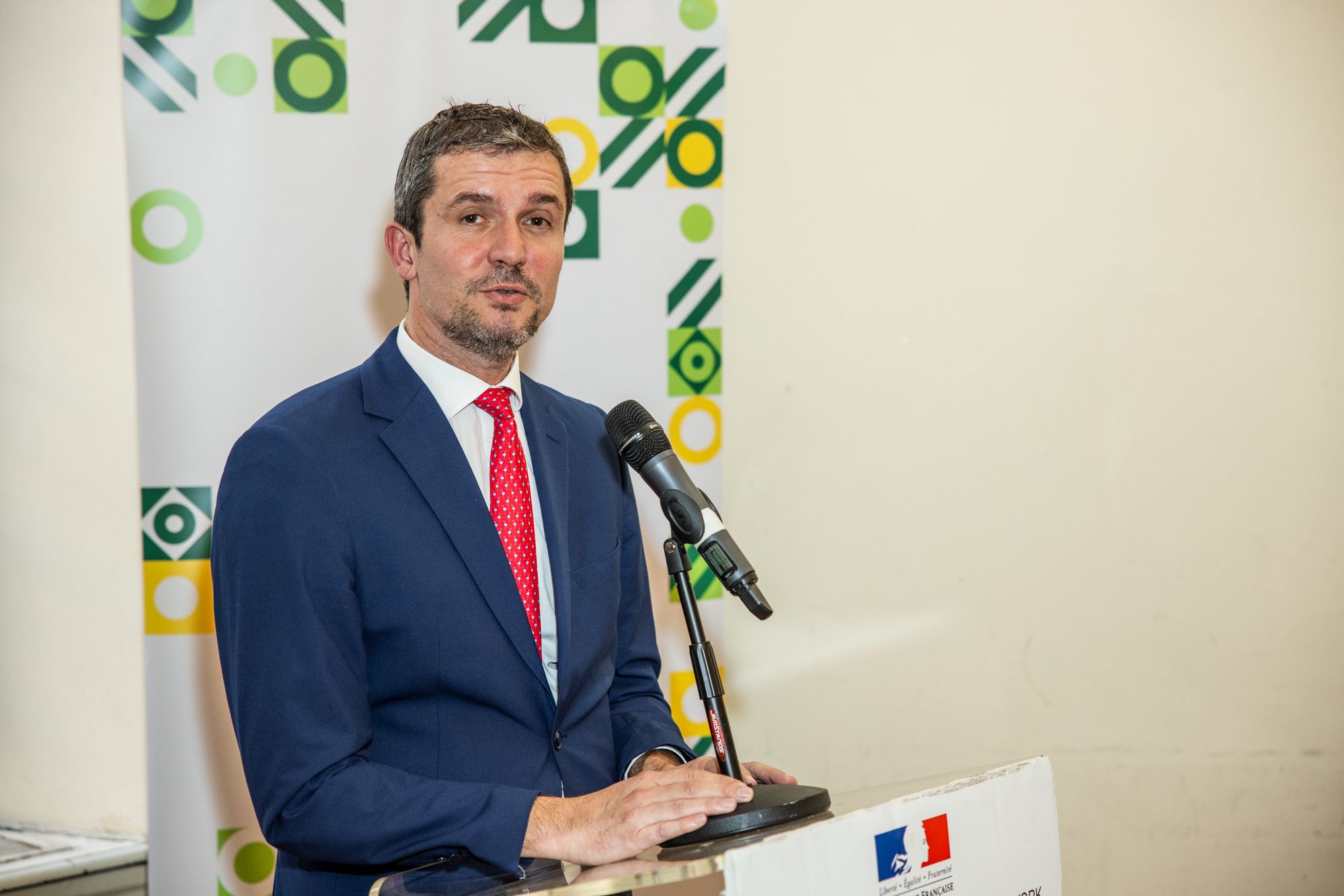
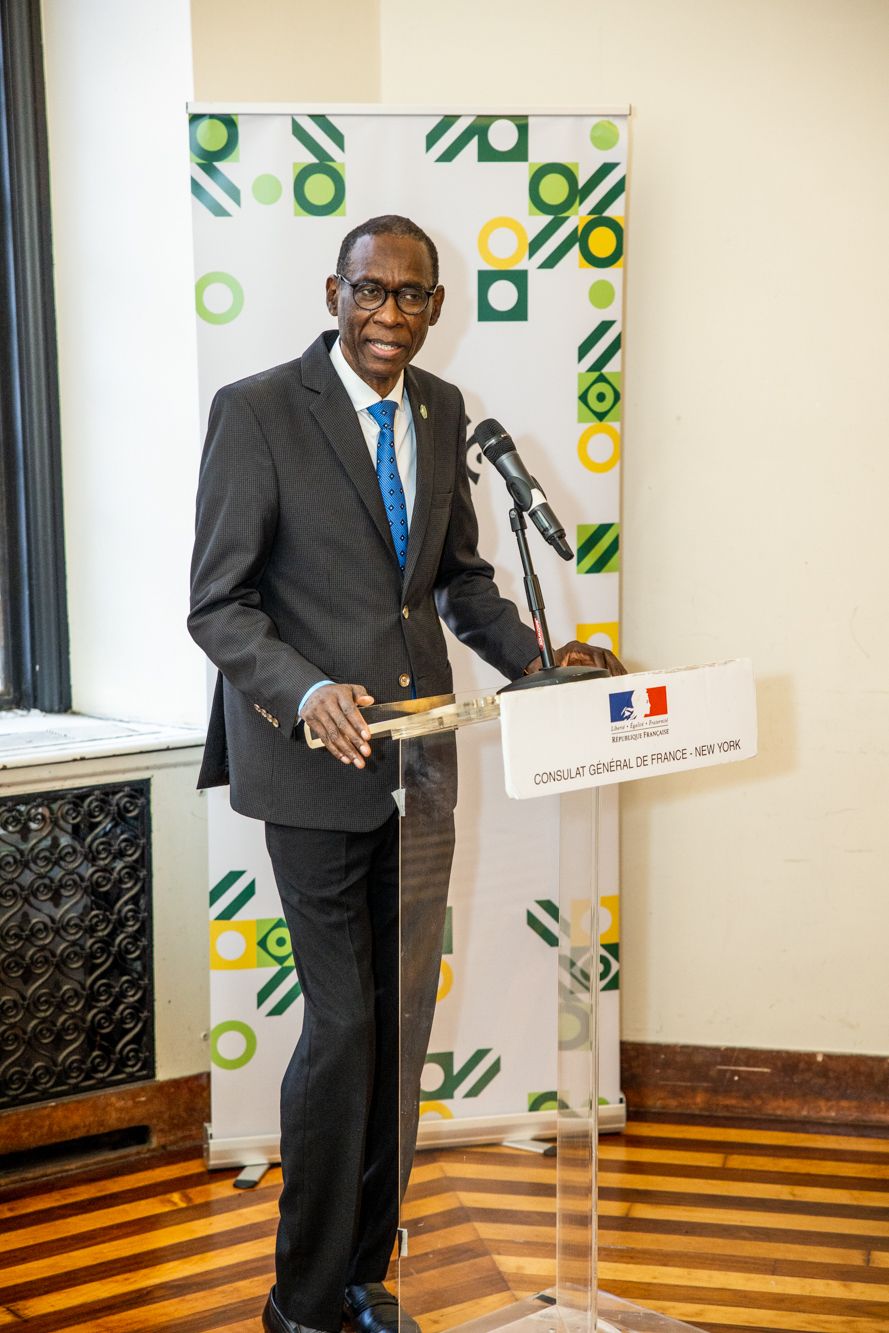
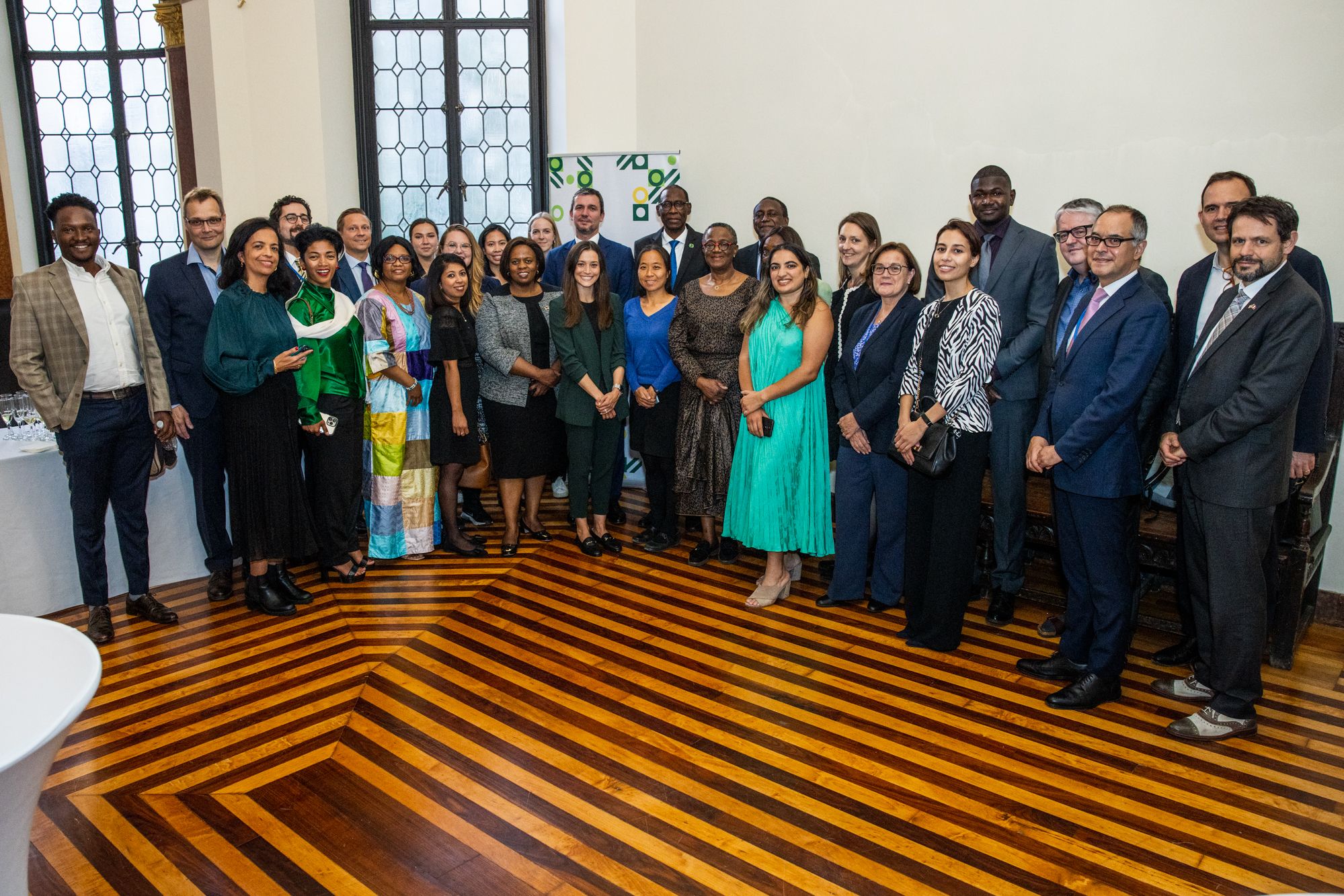
The AEF’s highlighted its commitment to bringing the Africa-Europe partnership to the fore and over UNGA met with heads of leading philanthropic foundations among them the Wellcome Trust, Gates Foundation and Rockefeller Foundation.
Our Executive Director, Paul Walton also joined Global Science Leaders as part of a joint initiative with IBM to discuss creative strategies for connecting changemakers and policymakers as well as an event on “The AU-EU Innovation Agenda” hosted by the European Commission Directorate General for Research and Innovation and the African Union.
Other key engagements included meetings with Annemarie Hou, Executive Director, United Nations Office for Partnership (UNOP) and Maria Cristina Russo Director for Global Approach & International Partnerships at the Directorate-General for Research and Innovation of the European Commission.
